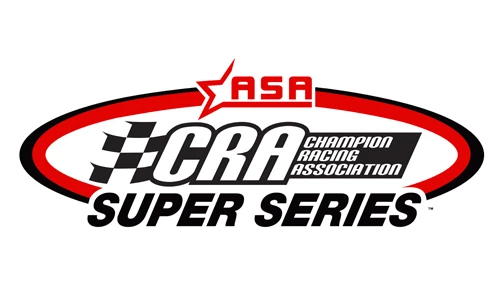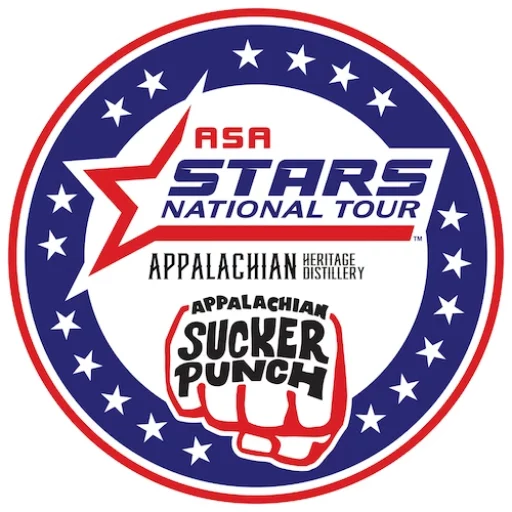By Kari Shear-Carlson
With racing comes passion, frustration, and down right fury once in a while and believe it or not my dad had all of those. He did not always have the composure that I have described over the past couple weeks. But isn’t that what is behind all great racers…passion, a passion so strong that sometimes it just cannot be contained?
For the first few years of his young career my dad would show up at the track by himself, unload, win, get his trophy and money, load back up and go home. He didn’t stir anything up, cause any commotion, or say much, if anything at all. People hated that!
I was told that all of that changed when one night in 1973 officials made a call to send him to the rear of the field. I never heard exactly why but he apparently didn’t agree with it. With cheers for the decision echoing from the crowd, he stopped his car on the front stretch. Got out. Climbed on top of the car. And let everyone in sight, most notably the officials, know they were number one. People loved that! (Ironically, I’m pretty sure he probably gained some fans that night.)
Needless to say he was kicked not only off the track but out of the track. He loaded up and told them he was glad to leave and was never going to return. That passionate display of displeasure didn’t just get him kicked out of a track though. It forced him to get out of his comfort zone and find other tracks to race at. He took all that fire and fury on to the next track and proved that he wasn’t a one-track racer. Let’s face it, it made him a better driver.
Of course I am not condoning the use of the one-finger salute as a method of improving one’s career and from what I know he never had another on-track passionate display of displeasure. As my dad matured he learned that he couldn’t control what was not in his control. Not only that but he did everything he could to make sure there wasn’t a need for anything or anyone to be against him.
But just because lessons were learned didn’t mean the passion stopped there.
Racing begins in the shop. So that’s where the passion began. Our plan was to leave as must frustration as possible at the shop so that we could unload the car with confidence. So if something wasn’t coming together just right you could feel the tension building. A tool might have been slammed down, or the creeper rolled out from under the car a little faster than usual, pistons flying across the shop. In fact a tape measure was once hurled through a closed window and landed in the yard. How’s that for passion?
Some may be reading this thinking, “wow, he must have had an anger problem or a bad temper.” But I will be the first to tell you he had neither of those. What he had was such an intense desire to win that he would settle for nothing less than absolute perfection. I doubt this was any different than any other driver who prepares to win.
He took full responsibility for every inch of his race car. I don’t mean that in the sense that he did everything himself. We had the best crew in the world. But he took full responsibility for the entire operation that surrounded him.
I don’t know how many reading this right now ever saw his “passion” expressed in the pit area. It didn’t happen often, but when it did it was like saying E.F. Hutton. The world stopped in silence.
If you were around at Madison when the car fell off the jack stands you would have seen him throw a drill down as hard as he could, breaking it on the ground, and following it up with kicking the door of the trailer. Or maybe the time at Illiana when things were just not going right and he threw a set of springs as hard as he could into the trailer. Now I must let you know that he never did anything that would potentially harm someone. Well maybe himself, as he admittedly hurt his toes when he kicked the trailer door.
Was he overreacting in these types of situations? Yup, and he would be the first to tell you how stupid it was. He just hated those things that were out of his control when he had worked so hard on the things he could control.
I have to be honest revealing this side of him was kind of uncomfortable for me. But I was asked to write about what made him legendary. My dad’s success wasn’t magic. He didn’t just jump into the driver’s seat and let success come to him. His career was one of growth and maturity through every single mistake and stupid reaction, and learning to accept the things that were out of his control.
Just like everyone else my dad made some bad choices. That’s not what made him successful. It was learning from them that built him into what he is remembered for today. Who knew that saluting the world with one finger while standing on top of a race car was part of the process of building a legend? But as the saying goes, “legends are made, not born.”
The “5th Annual Joe Shear Classic” is Sunday, May 5th. There is an all-division open practice on Saturday, May 4th. For complete weekend details, see the schedule on arcamidwesttour.com.
Be sure to follow the ARCA Midwest Tour on Facebook (midwesttour) and Twitter (@midwesttour).
To learn more about the Automobile Racing Club of America Midwest Tour, log on toarcamidwesttour.com. For questions call the ARCA Midwest Tour office at (262) 729-4111 or Tim Olson at (612) 327-5831 or Steve Einhaus (630) 212-6022 at or e-mail Tim Olson at tim@arcamidwesttour.comor Steve Einhaus at steve@arcamidwesttour.com.
The Automobile Racing Club of America (ARCA) is among the leading auto racing sanctioning bodies in the country. Founded in 1953 by John and Mildred Marcum, the organization administers more than 100 events each year in multiple racing series, including the ARCA





